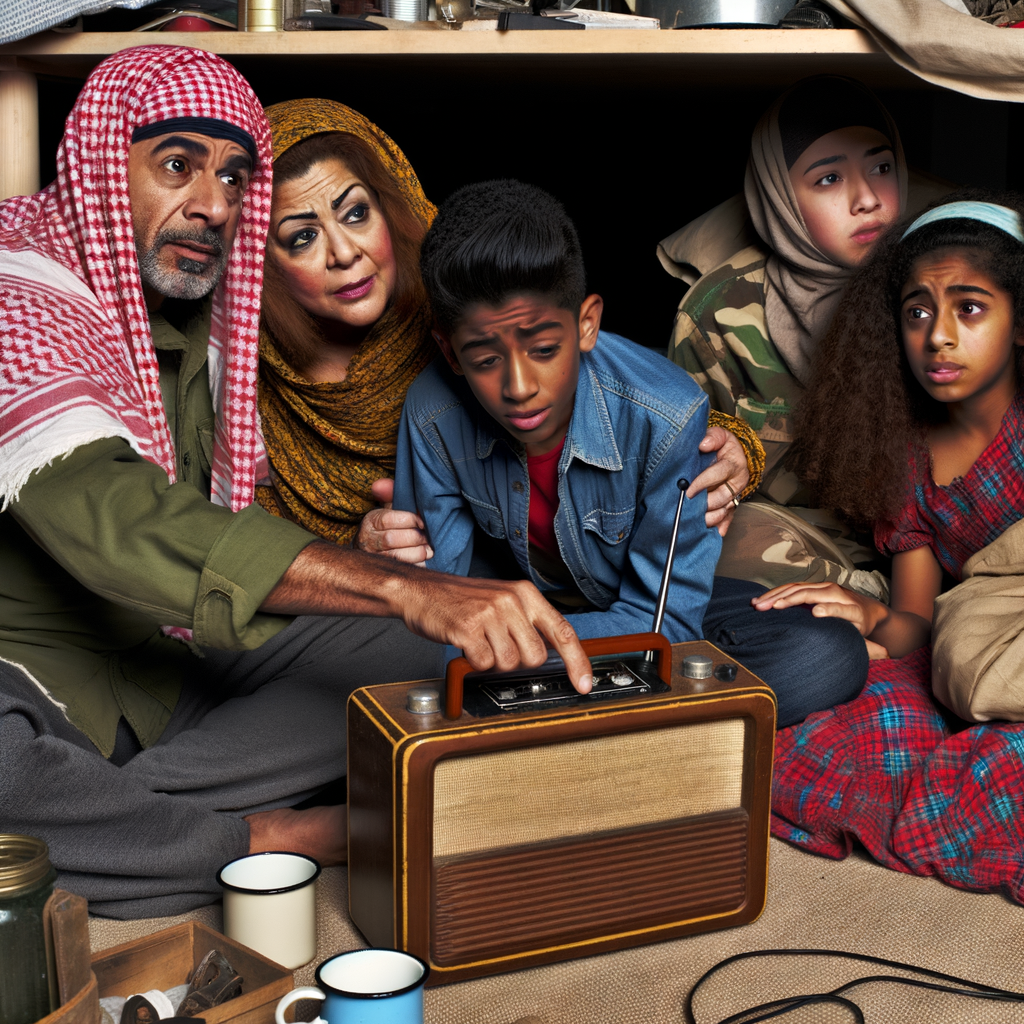Although a nuclear attack is unlikely, many countries have the nuclear capabilities and must be regarded as a threat. The threat of a nuclear attack is a chilling reality that cannot be ignored. While the idea of such an event may seem daunting, it is crucial to be prepared and have a plan in place for survival. In this article, we will discuss essential strategies for surviving a nuclear attack, emphasizing the importance of preparedness and early planning.

The threat is real: preparedness is vital
The devastation caused by a nuclear attack is unimaginable, and the aftermath can be chaotic and dangerous. It is essential to understand that the threat of a nuclear attack is real and that preparedness is vital. This includes having a well-stocked emergency supply kit, knowing the emergency procedures in your area, and having a plan in place for communication and evacuation. Being prepared can mean the difference between life and death in the event of a nuclear attack.
Stay informed
It is essential to remain informed in the event of a nuclear attack. Stay updated on emergency alerts, information from local authorities, and news updates to stay informed about the current situation. Keeping a battery-powered radio handy can also help you stay connected in case of a power outage. By staying informed, you can make informed decisions and take necessary precautions to protect yourself and your loved ones during and after a nuclear attack.
Create a plan
Create a plan that includes communication strategies, designated meeting points, and evacuation routes. Practice drills regularly with your family and loved ones to ensure everyone knows what to do in case of an emergency. Having a well-thought-out plan can make a significant difference in your ability to survive a nuclear attack.
Shelter
Once you have stocked up on essentials, it is important to secure your shelter to ensure maximum protection. Consider reinforcing doors and windows with additional barriers such as boards or metal shutters. This added layer of security can help prevent intrusion and further shield you from any potential dangers outside. Additionally, establish a communication plan with your family and loved ones to stay connected and coordinate in case of an emergency. By taking these extra precautions, you can enhance the safety and security of your shelter during a nuclear attack.
Shielding
Different layers of material each provide varying protection from radiation. It is important to be aware of which type of material provides the best protection, how thick the layer of material must be to provide protection, and what type of material is accessible for use.
| Material | Feet/Metres |
|---|---|
| Iron and steel | 0.7/0.21 |
| Concrete | 2.2/0.66 |
| Brick | 2.0/0.60 |
| Soil | 3.3/1.00 |
| Ice | 6.6/2.00 |
| Wood | 8.8/2.60 |
| Snow | 20.3/6.00 |
Prepare a shelter
When preparing a shelter for a nuclear attack, it is important to stock up on essentials such as non-perishable food, water, and medical supplies. Additionally, consider investing in a portable generator or solar-powered equipment to ensure you have access to electricity during an emergency. Don’t forget to include hygiene products, extra clothing, and bedding to make your stay in the shelter as comfortable as possible. Remember, being well-prepared can make a significant difference in your ability to survive a nuclear attack.
Seal your shelter
Sealing your shelter is a crucial step in protecting yourself from radioactive particles during a nuclear attack. By sealing windows, doors, and any other openings with plastic sheeting, duct tape, or towels, you can prevent harmful radiation from entering your shelter. Additionally, remember to turn off ventilation systems to avoid contamination. Taking these precautions will help minimize your exposure to radiation and increase your chances of survival.
Stay Inside
Staying inside is crucial during a nuclear attack to protect yourself from radiation exposure. Limiting your time outdoors and staying low to the ground can help minimize your risk of harmful exposure. It is important to follow authorities’ instructions and remain in your shelter until it is deemed safe to go outside. Remember, staying inside can significantly increase your chances of survival during a nuclear attack.
Monitor radiation levels
Monitoring radiation levels is crucial in a nuclear attack situation. Having a radiation detector on hand can help you stay informed about the radiation levels in your area, allowing you to make informed decisions about when it is safe to leave your shelter. Be sure to follow any guidelines provided by authorities regarding radiation levels and take necessary precautions to protect yourself from harmful exposure. Remember, staying informed and monitoring radiation levels can help ensure your safety and the safety of your loved ones during and after a nuclear attack.
Decontamination
Decontamination is a crucial step in ensuring your safety after a nuclear attack. If you have been exposed to radioactive particles, it is essential to remove contaminated clothing, shower thoroughly with soap and water, and seek medical attention immediately. Decontamination is key to reducing the risk of radiation exposure and minimizing its harmful effects on your health. Make sure to follow decontamination procedures carefully to protect yourself and your loved ones in the aftermath of a nuclear attack.
Stay connected
Stay connected with emergency services and follow their instructions for further actions or evacuation procedures. Follow news updates and official announcements for the latest information on the situation. Stay connected with loved ones to ensure everyone is safe and accounted for during and after a nuclear attack. Having a reliable means of communication can make a significant difference in coordinating efforts and ensuring everyone’s well-being. Stay informed and connected to maximize your chances of survival in a chaotic and dangerous situation.
Seek medical attention
Seeking medical attention is crucial after a nuclear attack. If you or anyone in your group is showing symptoms of radiation exposure, such as nausea, vomiting, dizziness, or burns, it is important to seek medical assistance immediately. Hospitals and emergency centers are equipped to provide necessary treatment and care for radiation exposure. Do not overlook any symptoms and prioritize seeking medical help to ensure your well-being and recovery.
Ulcer-like sores may appear on the skin. These can be grayish in hue. Sterilize and bandage immediately as untreated open sores may lead to infection.
It is important to educate yourself on the potential risks and effects of a nuclear attack, as well as the steps you can take to protect yourself and your loved ones. This includes knowing the signs of a nuclear attack, such as a bright flash of light followed by a loud blast, and seeking immediate shelter in a sturdy building or underground as soon as possible. Understanding the importance of preparedness and taking proactive steps to address the threat can increase your chances of survival in a nuclear attack.
Don’t wait until it’s too late: plan now for survival
One of the biggest mistakes people make is waiting until it’s too late to make a plan for survival. Don’t be caught off guard – start planning now for how you will respond in the event of a nuclear attack. This includes identifying potential shelter locations, establishing communication protocols with your family and loved ones, and practicing drills to ensure everyone knows what to do in an emergency. Waiting until the threat is imminent is a dangerous gamble that could cost you your life.
It is essential to take the threat of a nuclear attack seriously and prioritize your safety and survival. Don’t wait until it’s too late to make a plan – take action now to ensure you are prepared for any eventuality. By planning ahead and being proactive in your approach to survival, you can increase your chances of making it through a nuclear attack unscathed. Remember, it’s better to be over-prepared than under-prepared when it comes to something as serious as a nuclear attack.
Surviving a nuclear attack requires a combination of preparation, planning, and quick thinking. By understanding the real threat of a nuclear attack and taking proactive steps to prepare for it, you can increase your chances of survival in the event of such a catastrophic event. Don’t wait until it’s too late – start planning now and ensure you and your loved ones are ready to face whatever may come your way.

